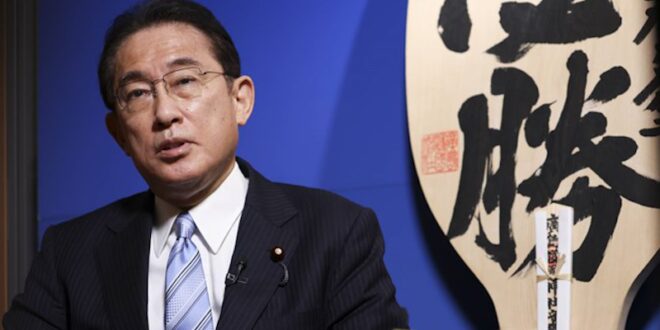On 24 December 2021, after procrastinating for more than a month, Japan’s Chief Cabinet Secretary, Hirokazu Matsuno finally announced his country’s decision to not send a government delegation to the Beijing Winter Olympics in February 2022. This follows a US-led move to boycott the Olympics to protest human rights violations in China. While there is to be no official government delegation, three Japanese heavyweights with ties to the Olympics will be travel to Beijing. Further, Tokyo has refrained from using the term ‘diplomatic boycott’. Matsuno said that Japan “does not have a special term” for its decision. It is also important to note that the announcement was made by the Matsuno and not by the Prime Minister Fumio Kishida. It is obvious that Japan has tried to take a balanced approach, which can be seen in at least three interrelated layers.
First is that there appears to be a domestic balancing act by Fumio Kishida between hardliners and moderates within the ruling Liberal Democratic Party (LDP). Kishida is himself from the LDP faction that is considered to be softer on China. He appointed Yoshimasa Hayashi, who was the head of the Japan-China Parliamentarians’ Friendship League, as the new Minister for Foreign Affairs. He briefly held the former portfolio even after taking charge in Kishida’s new cabinet. Hayashi has also made certain formal statements that project China as “very important” for Japan. For balance, Kishida has appointed Gen Nakatani, who has been raising the issue of human rights in China for many years, as his special adviser on human rights. Kishida has held meetings with former Prime Minister Shinzo Abe, who appears to be pushing for a more aggressive stand on China. At the same time, Kishida has been listening to the views of his own faction within the party, which is less anti-China. He is thus seeking to balance between demands for engagement and contestation with China within the LDP.
Second, Kishida has sought a balanced approach to China so as to avoid one-dimensional engagement or combative policy measures. Japan has raised the Taiwan issue and asked for a contingency plan to be ready—this stand on Taiwan has been more frequently and overtly expressed in 2021. Most recently, on 24 December, the LDP and Taiwan’s Democratic Progressive Party (DPP) had online talks in which they discussed lifting the ban on Taiwan’s food imports from five Japanese prefectures, including Fukushima. On 17 December, Japan also announced that its next defence budget would be raised to US$ 47.2 billion. While the Japanese defence budget has continuously risen in the past ten years, crossing one per cent of the country’s GDP is historic, and the message it sends is obvious. To balance these decisions, Japan has allegedly diluted its Indo-Pacific strategy by replacing the word ‘strategy’ with ‘vision’. While its contestation with Beijing over the Senkaku/Diaoyu Islands have gone up a few notches, Tokyo appears to be looking forward to celebrating in 2022 the 50th year of establishing diplomatic relations with Beijing.
Third, Japan is also seeking to find equilibrium for itself in the US-China great power game. Granted, it is a US ally and its relations with China are considered to be scripted by the US. Gradually, however, Tokyo seems to be working towards a more nuanced and autonomous position in the region. Some in Japan hold the view that its economic and security interests should be pursued separately: continue improving economic cooperation with China while also strengthening security dynamics and trust with the US. Tokyo’s balancing act is in pursuit of its economic and security needs; the result of increasing confidence about its role and place in regional equations; and a consequence of the quest to become a ‘normal state’.
While Tokyo’s balancing impulses aren’t entirely new, they have become more pronounced in the past few years. The new leadership under Kishida seems to be making even more deliberate efforts towards this end. There are apprehensions in trying to please contrarian constituencies, everyone may be left dissatisfied. Japan has however chosen a mixed approach that is apparently good for its national as well as regional interests. An either/or policy framework hasn’t proved to be very useful, and Tokyo’s mosaic-like approach must be appreciated.
 Eurasia Press & News
Eurasia Press & News




